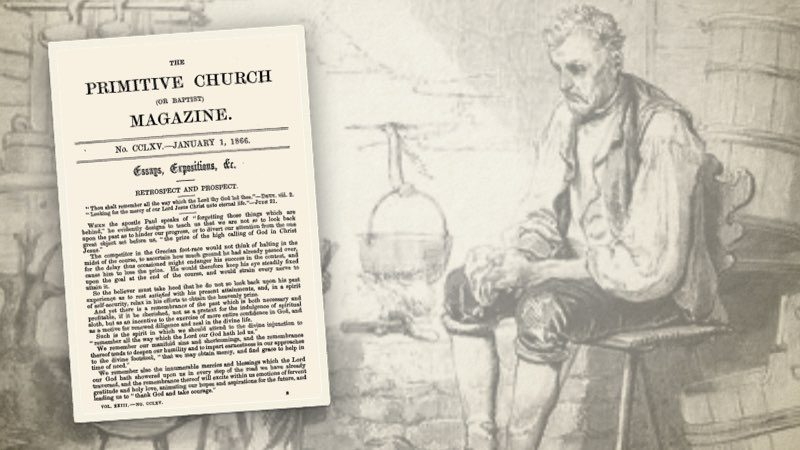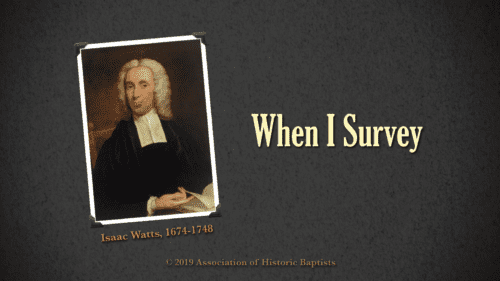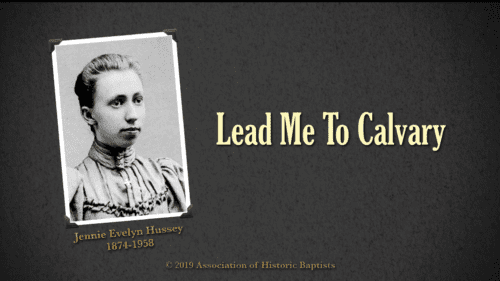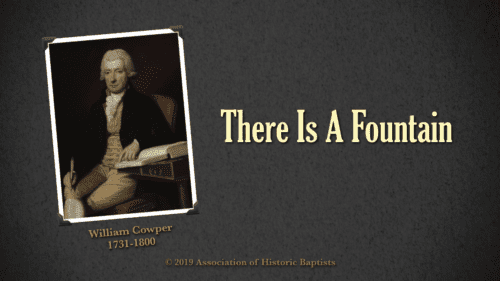-
The Nature And Increase Of Faith
Faith is the gift and the operation of God. It comes by the Holy Spirit’s power rising and strengthening the sublimest faculties of the soul, and is really a regeneration—a rebegetting—a revival of life from the dead. Thus the believer is said to be “born of the Spirit,” because it is the Spirit’s office in the covenant of grace to regenerate, and because it is the promise concerning the Spirit to all, “even as many as the Lord our God shall call.” And thus also the Christian is said to be “born, not of blood, nor of the will of the flesh, nor of the will of man, but of God.” When the principle of divine life and light is given to the soul, it…
-
On Faith
As faith is no way to be understood so well as by its effect, we cannot do better than trace it in its operations, for as it is a divine principle, emanating from God and taking possession of his beloved family, disposing them to love and serve God with all their hearts and souls, working in them both to will and to do of His own good pleasure; so it is a grace that human reason can never comprehend, nor fallen nature submit to, nor the will of man embrace, as this faith is the gift of God, Eph. 2:6, and without it it is impossible to please God, for what is not of faith is sin. Thus it appears that without this divine principle…
-
There Is A Period Known To God
Hebrews 13:20,21: "Now the God of peace, that brought again from the dead our Lord Jesus, that great shepherd of the sheep, through the blood of the everlasting covenant, make you perfect in every good work to do his will, working in you that which is wellpleasing in his sight, through Jesus Christ; to whom be glory for ever and ever. Amen." 1 Peter 2:24,25: "Who his own self bare our sins in his own body on the tree, that we, being dead to sins, should live unto righteousness: by whose stripes ye were healed. For ye were as sheep going astray; but are now returned unto the Shepherd and Bishop of your souls." Isaiah 53:1-12: "Who hath believed our report? and to whom is…
-
Addendum – The Sanctification Of The Spirit
Articles Of The Faith And Order Of A Primitive Or Strict And Particular Baptist Church Of The Lord Jesus Christ, Based On The Declaration Of Faith And Practice Of John Gill, D. D., 1720 XXIX. Conclusion. All and each of these doctrines and ordinances we consider ourselves under the greatest obligation to embrace, maintain, and defend; believing it to be our duty and privilege to “stand fast in one spirit, with one mind, striving together for the faith of the gospel.” And whereas we are very sensible that our “conversation," both in the Church and in the World, ought to be “as becometh the gospel of Christ,” we judge it our incumbent duty to “walk in wisdom towards them that are without and to exercise…
-
1 Corinthians: Chapter 2, Verse 14
“But the natural man, etc.]” Not a babe in Christ, one that is newly born again, for though such have but little knowledge of spiritual things, yet they have a taste, and do relish and desire, and receive the sincere milk of the word, and grow thereby; but an unregenerate man, that has no knowledge at all of such things; not an unregenerate man only, who is openly and notoriously profane, abandoned to sensual lusts and pleasures; though such a man being sensual, and not having the Spirit, must be a natural man; but rather the wise philosopher, the Scribe, the disputer of this world; the rationalist, the man of the highest attainments in nature, in whom reason is wrought up to its highest pitch;…
-
1 Corinthians: Chapter 2, Verse 13
“Which things also we speak, etc.]” Namely, the things which have not been seen by the eye, heard by the ear, or understood by the heart of man; the things God has prepared for his people; the deep things of God; the things of God which are only known to the Spirit; the things that are freely given to them of God, and made known to them by the Spirit of God: these things are spoken out, preached, and declared to the sons of men, “not in the words which man’s wisdom teacheth;” Which are learned in the schools of the philosophers, put together by human art, and “in the taught words of human wisdom”, as the clause may be rendered; such as are taught…










